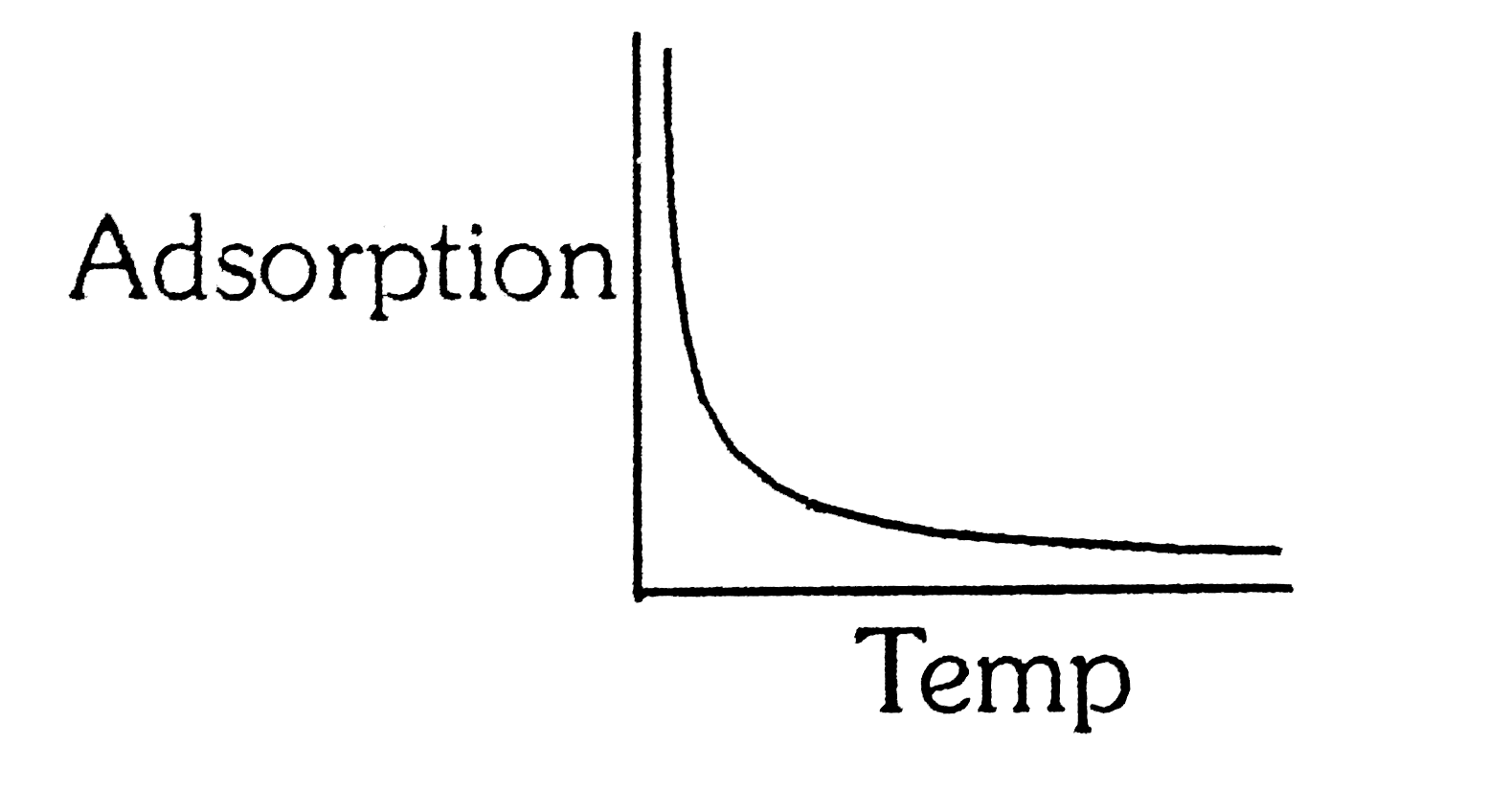Why is adsorption always exothermic ?
Text Solution
"Adsorption is always exothermic" this statement can be explain by following two types :
(i) During adsorption, there is always a decrease in residual forces of the surface. So, we can say that adsorption is an exothermic process.
(ii) Value of ΔH is always negative for adsorption. When a gas is adsorbed on the solid adsorbent, antropy of gas always decreases. So, ΔS becomes negative too and because of the reaction is spontaneous. ΔG is negative too.
∴ΔG=ΔH−TΔS
Thus, ΔG is negative because ΔSandΔH both are negative. It indicates that adsorption is always exothermic.
|
Topper's Solved these Questions
- SURFACE CHEMISTRYBOOK - KUMAR PRAKASHANCHAPTER - SURFACE CHEMISTRYEXERCISE - SECTION - D (NCERT EXEMPLAR SOLUTION) (MULTIPLE CHOICE QUESTIONS (MCQs))
25 Videos
- SURFACE CHEMISTRYBOOK - KUMAR PRAKASHANCHAPTER - SURFACE CHEMISTRYEXERCISE - SECTION - D (NCERT EXEMPLAR SOLUTION) (MULTIPLE CHOICE QUESTIONS MCQs)(MORE THAN ONE OPTION)
12 Videos
- SURFACE CHEMISTRYBOOK - KUMAR PRAKASHANCHAPTER - SURFACE CHEMISTRYEXERCISE - SECTION - B (INTEXT QUESTIONS AND ANSWERS)
8 Videos
- SOLUTIONS BOOK - KUMAR PRAKASHANCHAPTER - SOLUTIONS EXERCISE - SECTION - E MCQs asked in GUJCET/Board Exam
69 Videos
- THE D-AND F-BLOCK ELMENTSBOOK - KUMAR PRAKASHANCHAPTER - THE D-AND F-BLOCK ELMENTSEXERCISE - Section -E MCQs asked in GUJCET/Board Exams)
50 Videos
Similar Questions
Knowledge Check
Adsorption is always
AEndothermicBExothermicCAccompanies increase enthropyDAccompanies with increase of enthalpyStatement: A catalyst always lower the energy of ectivation.
Explanation: The catalyst-reactant interaction forms activated adsorbed complex and adsorption is always exothermic.A(a) S is correct but E is wrongB(b) S is wrong but E is correctC(c ) Both S and E are correct and E is correct explanation of SD(d) Both S and E are correct but E is not correct explanation of S.The correct statements pertaining to the adsorption of a gas on a solid surface are
(i) Adsorption is always exothermic
(ii) Physisorption may transform into chemisorption at high temperature
(iii) Physisorption increases with increasing temperature but chemisorotion decrease with increasing temperature
(iv) Chemisorption is more exothermic than physisoption, however, it is very slow due to higher energy of activationA(i),(ii),(iii),(iv)B(ii),(iii),(iv)C(i),(iii)D(ii),(iv)
Why all adsorptions are exothermic in nature ?
View SolutionAdsorption is always exothermic in nature , Do tor agree ?
View SolutionAdsorption is exothermic. True/False
View SolutionIs adsorption an exothermic or endothermic phenomenon ?
View SolutionAssertion :- The graphical representation of physical adsorption with temp is

Reason :- This is weak adsorption & adsorption is exothermic process.
View Solution
